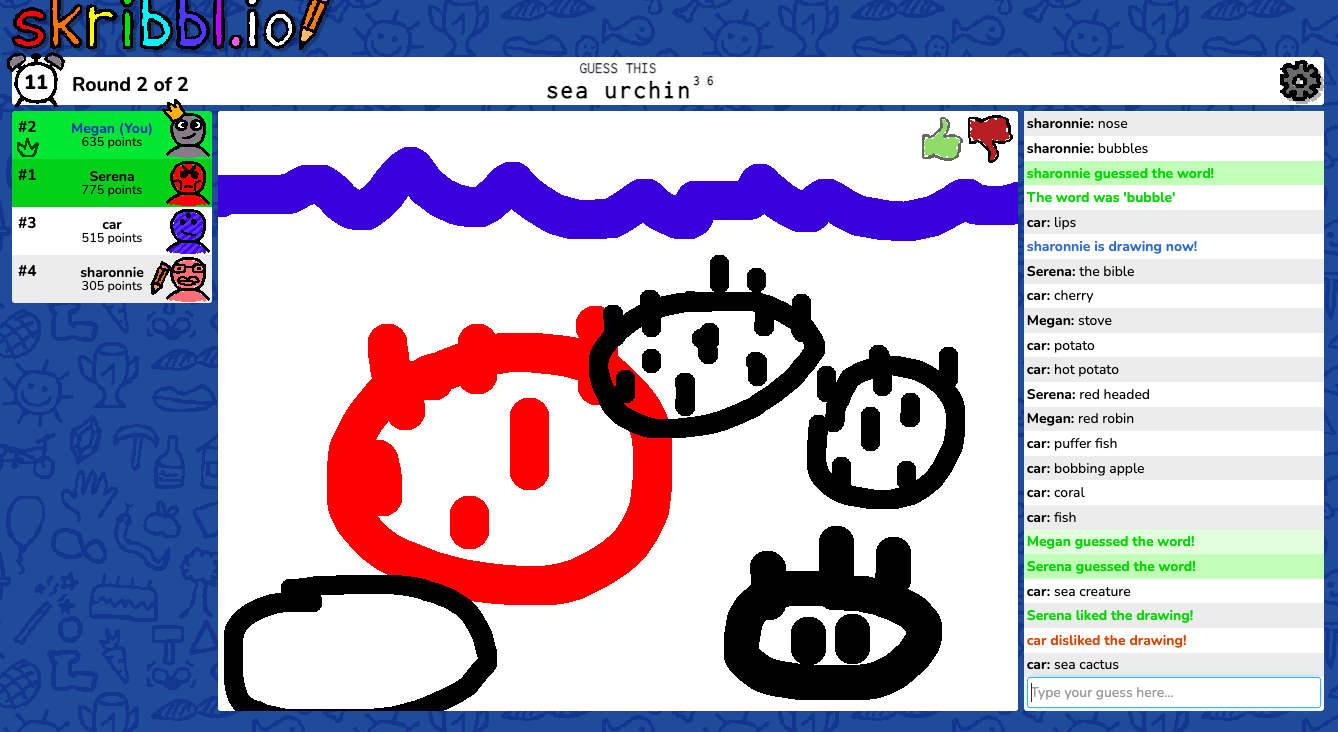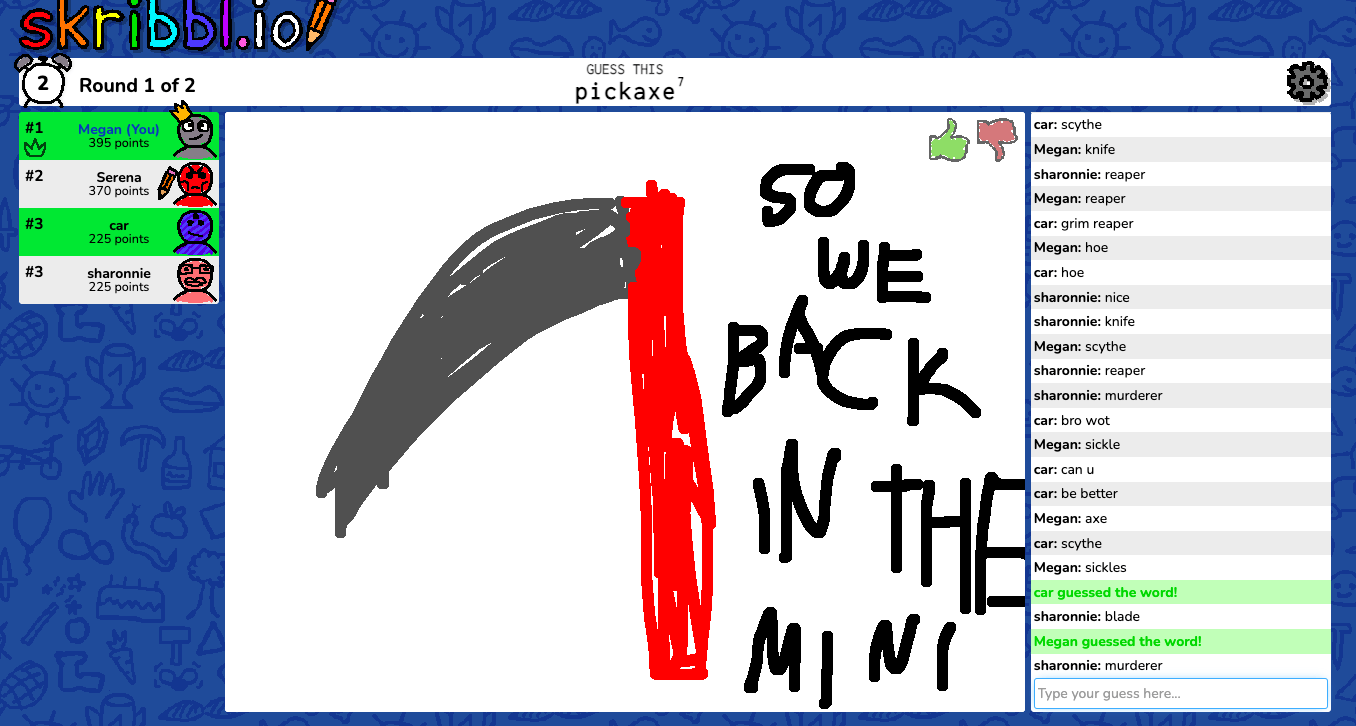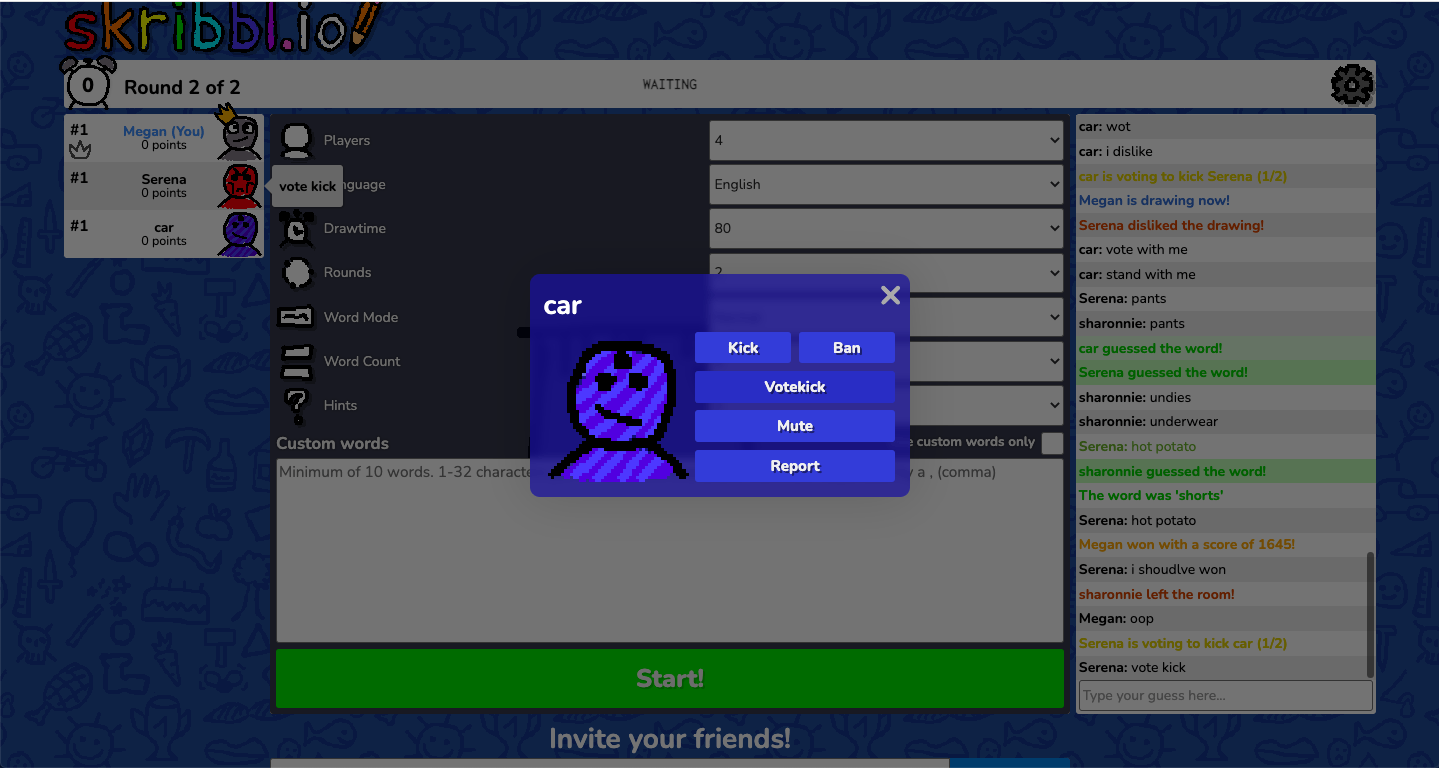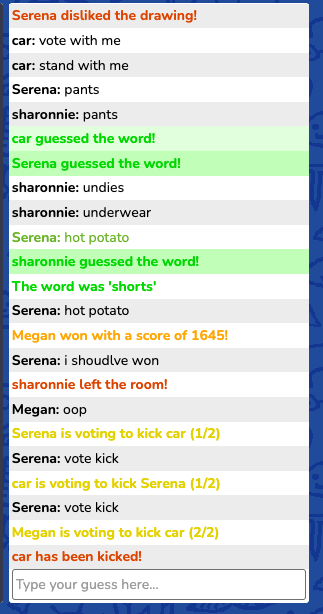
Skribbl.io is a game developed by ticedev played online on computer/phone/tablet. Based on the sketchy font, pixelated graphics, and bright, saturated colors, the target audience seems appears to be young adults and under. At least 2 players are necessary for the rounds to work, but 3 or more is better for more engaging rounds, and more than 5-6 players will lead to really long rounds. During each round, there is one artist, and the rest of the players are artists. The objective of guessers is to gain points by judging drawings to guessing the correct prompt (given the number of characters in the prompt), and the objective of artists is to create a drawing that all guessers get correct. Players can upvote and downvote drawings, type anything in the chat, and vote to kick other players out.

Because players’ scores in each round depend on the speed of guesser’s answers and drawing skill, this generates a competitive sense for fun. However, since the game doesn’t take itself that seriously, it allows players who are familiar with each other to safely make judgements about each others’ drawing ability and guesses–this dynamic of teasing, is fun and makes players feel more vulnerable/intimate with each other. For example, the guess “hoe” [see below] was poked fun at, which was backfired with complaints about the accuracy of the drawing. Ultimately, these conversations about the art are what leads this game to be compelling for close friends to play, especially over zoom from remote locations. The other play mode that skribble.io allows you to play with strangers. There is much less opportunity for conversation, and players tend to be more competitive. This is also where the ability to upvote, downvote, votekick, and report become more relevant.

While these mechanics can be used in a silly way between friends, the open chat and blank canvases are features that allow opportunity for abuse. From bots to cheating or just writing the word out on the canvas — many different bad actors can ruin the fun of the game. So having these additional reporting actions available to keep other players accountable can protect against abuse (and also be abused in other ways, such as to remove a properly winning player). One way to modify chat to make it more game-focused and less open for abuse could be to restrict entries to words that are the correct length and also dictionary words, with a blacklist on profanity. However, these restrictions could also turn away older players of the game. Additionally, having longer drawing times or more drawing tools, such as undo and redo, could also improve the player experience. Ultimately, having these all as customizable settings would allow players to create the optimal game for themselves.

Allowing you to play with strangers online differentiates skribbl.io from its competitors like gartic phone and jackbox, which require you to come with other players, and the judgement/skill/and level of vulnerability differentiates it from games like agar.io. Agar.io allows you to focus on competing with many more other players while divulging little personal information (drawing is inherently vulnerable because you are creating something, and skribbles’ inherent judging mechanic makes you even more vulnerable). However, Skribbl.io gives less time for artists to produce nice-looking art and focuses less on humor than gartic phone and jackbox–humor is difficult, so those games often put you in more vulnerable situations, but the payoff is more rewarding and bonding for the players. Therefore, depending on what kind of fun you want, agario, jackbox, or gartic phone are better specialized. Altogether, skribbl.io is a fun game for simultaneously being competitive and getting vulnerable, but not too vulnerable; to keep players entertained for a longer period of time, they should consider adding more features.



